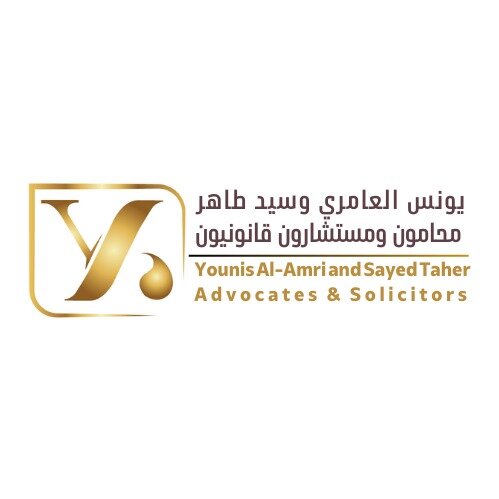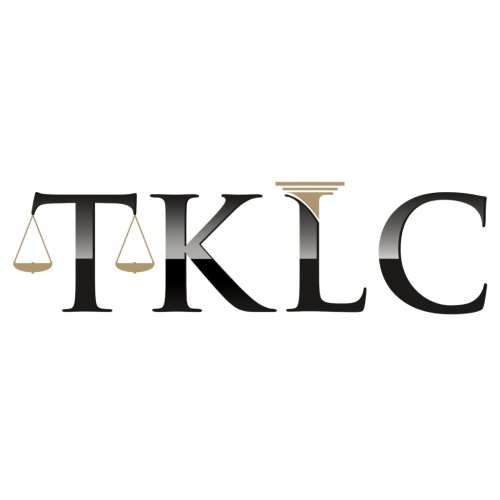Best Native People Lawyers in Oman
Share your needs with us, get contacted by law firms.
Free. Takes 2 min.
Or refine your search by selecting a city:
List of the best lawyers in Oman
About Native People Law in Oman
Native People in Oman, often referred to as the indigenous tribal communities, have a rich cultural heritage and a significant presence in shaping the historical and social fabric of the country. The Sultanate of Oman recognizes the importance of preserving the rights, culture, and traditions of these communities. Many native tribes are deeply integrated within Omani society and continue to maintain their traditional ways of life, especially in rural and desert areas.
Legal matters concerning Native People in Oman often involve issues related to land rights, preservation of cultural heritage, and disputes arising within tribal communities. These aspects are governed by a mix of traditional tribal norms and national laws. Understanding the unique intersection of these legal frameworks is essential for addressing any legal concerns particularly associated with Native People in Oman.
Why You May Need a Lawyer
There are several scenarios where individuals may require legal assistance specifically concerning Native People in Oman. These include:
- Land disputes involving tribal lands and boundaries
- Family and inheritance disputes within tribal communities
- Legal issues related to the preservation of cultural and historical sites
- Consultation on traditional laws and their application within the national legal framework
- Representing tribal communities in government or legal negotiations
- Ensuring compliance with national development projects impacting indigenous lands and resources
In such situations, a lawyer who is knowledgeable about both national laws and tribal customs is indispensable. They can provide legal advice, representation, and mediation services to resolve disputes effectively while respecting tribal traditions.
Local Laws Overview
Oman has a dual legal system that accommodates both civil and Sharia law, along with a recognition of traditional tribal laws. Key aspects relevant to Native People include:
- Land Rights: Many tribal lands are communally owned, and disputes may arise over land use and ownership. Legal provisions may protect these communal lands from unauthorized use or encroachment.
- Cultural Preservation: The government has enacted laws to protect and preserve cultural heritage sites, some of which may belong to Native People.
- Tribal Courts: In some regions, tribal leaders and councils still play a role in resolving disputes according to traditional laws and customs.
- Resource Rights: Regulations may govern the use of natural resources such as water and minerals on tribal lands, requiring negotiation with tribal authorities.
Understanding how these laws interplay and affect the rights and responsibilities of Native People requires tailored legal advice and awareness of both national legislation and tribal customs.
Frequently Asked Questions
What are the main tribes considered as Native People in Oman?
Oman is home to many indigenous tribes, including the Al Hinawi, Al Ghafiri, Al Abri, and others, each with its own unique cultural and historical significance.
Do Native People in Oman have special legal rights?
While all citizens of Oman have equal rights under the law, there are specific legal considerations, particularly regarding land and cultural heritage, that apply uniquely to indigenous tribal communities.
Can tribal laws override national laws in Oman?
Tribal laws are respected but must align with national laws. In cases of conflict, national laws typically prevail, though efforts are made to respect tribal customs as much as possible within the legal framework.
How is land ownership handled for Native People?
Land ownership for Native People often involves communal land holding. Disputes over land are usually resolved within the tribe, but legal intervention may be required when disputes arise with outside entities.
Are there specific legal processes for resolving disputes in tribal areas?
Disputes are commonly resolved through tribal councils or courts, using traditional dispute resolution methods. Legal assistance may be necessary when disputes escalate or involve external parties.
What is the role of a lawyer in Native People’s land disputes?
A lawyer can provide crucial assistance in negotiating with government entities, facilitating resolution within tribal frameworks, and ensuring compliance with national law.
How can I find a lawyer specialized in Native People’s legal issues?
It's important to seek a lawyer with expertise in both tribal and national laws. Many law firms in Oman specialize in land and cultural rights, and they can provide guidance tailored to these issues.
Can Native People restrict access to their lands?
Native People have the right to control access to their lands, especially for preservation purposes. Any development or use usually requires consultation and consent from the tribal authorities.
How does the government support cultural preservation for Native People?
The Omani government has policies in place to protect and promote the cultural heritage of Native People, including establishing legal frameworks for the conservation of historical sites and traditions.
What should I do if I have a conflict involving tribal lands?
Contact a lawyer with expertise in Native People’s matters to understand your rights and options, and consider initiating discussions directly with the involved tribal community for a resolution.
Additional Resources
For more information, you may consider reaching out to the following resources:
- Ministry of Heritage and Culture: Provides guidelines and support for cultural preservation projects.
- Omani Lawyers Association: Can assist in finding specialized legal professionals for tribal legal issues.
- Local Tribal Councils: Serve as mediators and advisors in tribal matters, having a thorough understanding of traditional customs.
These entities can offer further guidance and resources to support legal matters pertaining to Native People in Oman.
Next Steps
If you find yourself needing legal assistance regarding Native People in Oman, here are some steps you can take:
- Identify your specific legal needs and concerns.
- Research and contact a lawyer with expertise in Native People’s rights and Oman’s legal system.
- Gather any necessary documentation and evidence related to your case.
- Engage in dialogue with tribal authorities, if applicable, to seek a resolution.
- Stay informed about ongoing legislation and policies affecting Native People.
By taking these steps, you can better navigate the legal system and protect the rights and interests of Native People in Oman effectively.
Lawzana helps you find the best lawyers and law firms in Oman through a curated and pre-screened list of qualified legal professionals. Our platform offers rankings and detailed profiles of attorneys and law firms, allowing you to compare based on practice areas, including Native People, experience, and client feedback.
Each profile includes a description of the firm's areas of practice, client reviews, team members and partners, year of establishment, spoken languages, office locations, contact information, social media presence, and any published articles or resources. Most firms on our platform speak English and are experienced in both local and international legal matters.
Get a quote from top-rated law firms in Oman — quickly, securely, and without unnecessary hassle.
Disclaimer:
The information provided on this page is for general informational purposes only and does not constitute legal advice. While we strive to ensure the accuracy and relevance of the content, legal information may change over time, and interpretations of the law can vary. You should always consult with a qualified legal professional for advice specific to your situation.
We disclaim all liability for actions taken or not taken based on the content of this page. If you believe any information is incorrect or outdated, please contact us, and we will review and update it where appropriate.
Browse native people law firms by city in Oman
Refine your search by selecting a city.












